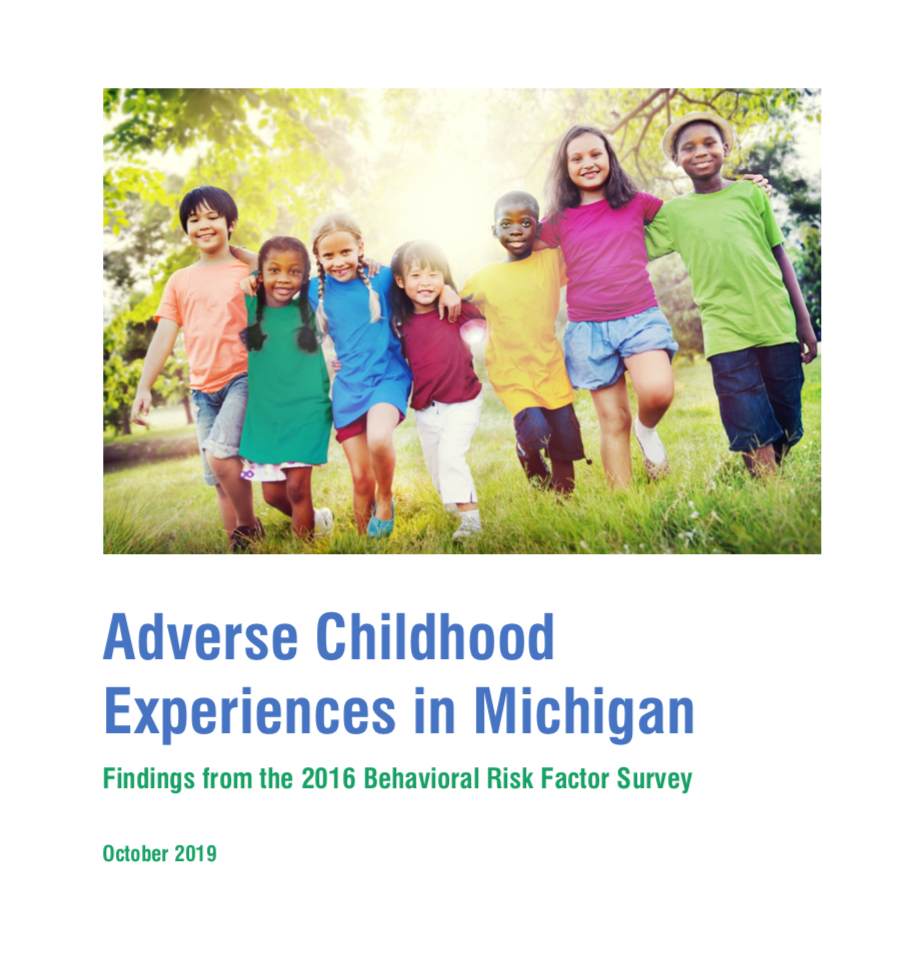Adverse Childhood Experiences in Michigan:
Findings from the 2016 Behavioral Risk Factor Survey
Adverse childhood experiences (ACEs) are widespread among Michigan adults, with 66% reporting one or more. These experiences are a risk factor for numerous health risk behaviors, such as smoking, and for negative health outcomes, such as depression and asthma. However, there is hope. ACEs load, or the number of ACEs an individual has, contributes to—but does not guarantee—poor health outcomes later in life. Moreover, social support may help reduce the risk of negative health outcomes, even among Michigan adults with a high ACEs load.
In Michigan, eight specific ACEs (Exhibit 1) are tracked through the Behavioral Risk Factor Survey (BRFS)—an annual state-level telephone survey of adults (aged 18 and older) conducted by the Michigan Department of Health and Human Services (MDHHS) (Appendix B). The Michigan BRFS is part of a larger national Behavioral Risk Factor Surveillance System coordinated by the CDC.
This report, prepared by Public Sector Consultants for the Children’s Trust Fund and the Michigan Department of Health and Human Services, identifies the relationship between ACEs load, health risk behaviors, and negative health outcomes.

